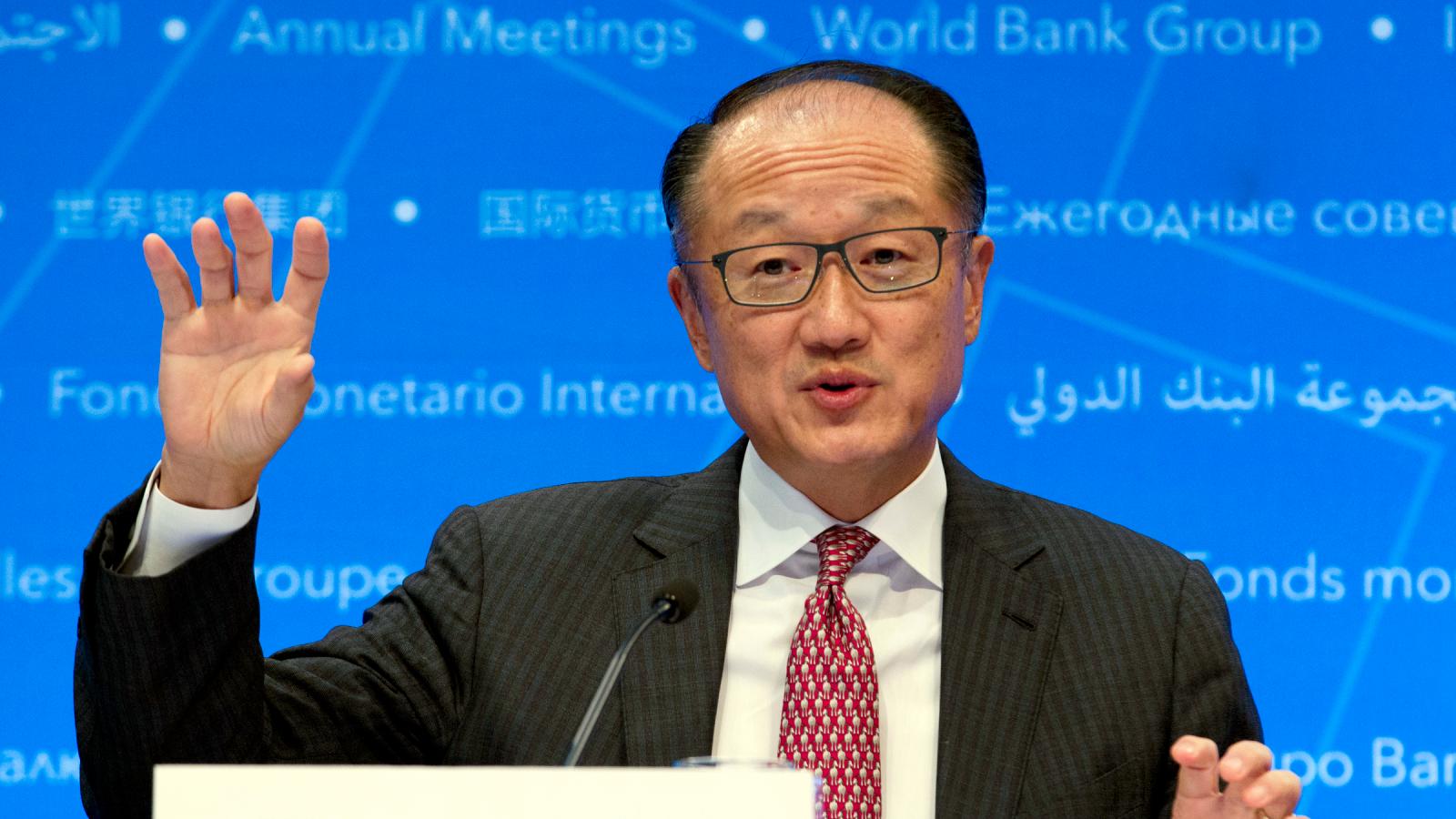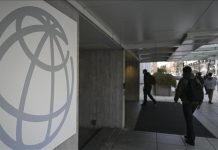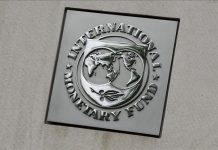FOR decades under a “gentleman’s agreement” the USA and Europe shared the leadership of the World Bank and the International Monetary Fund (IMF), respectively.
It was initially rationalized by the huge shares and in turn boardroom voting rights they both held; constituting more than 50 per cent. At one time the USA alone had 38 per cent shares.
This was before the new independent states and the ex-communist countries from Poland to China joined, which has reduced Washington’s shares to slightly less than 20 per cent.
This somewhat archaic arrangement has increasingly been questioned by academics, civil society and eventually governments as undemocratic and unlikely to bring to the fore the best candidate more so since the World Bank Presidents were nominated by the USA President with no non-American input and endorsed by a Board dominated by Anglo- Saxons.
In the case of the IMF Managing Director’s post the dominant European powers namely Germany and France have a big say and often shared the position.
Critics have sought an open, meritbased, transparent and competitive process open to all member states big and small to get the best person for the job.
The first reservations on a USA nominee albeit somewhat subdued occurred when the Reagan/ Bush White House nominated a non-Bank/Wall Street career politician, ex-Congressman, Barber Conable as World Bank President in 1986.
In rejecting this post Senator Conable himself argued that his interest has never been development finance and poverty reduction.
But Treasury Secretary James Baker warned him that he was the only person they could agree on and his refusal might prompt the Europeans to put forward a rival candidate thereby encroaching on the powers and privileges of the USA President. Mr Conable acquiesced albeit grudgingly.
It later became clear that the Administration’s main reason for giving him the post was their admiration for his having been a gallant fighter alongside George H W Bush in World War 2.
Conable turned out to be a transitional one-term President. Henceforth the USA was careful about its nominations often settling for American candidates with foreign ancestry as was the case with long-serving President Jim Wolfensohn (Australia), and the outgoing President Jim Jong Kim (South Korea), to placate the international community and enhance their acceptability.
A first major rejection of a USA presidential nominee came in 2005 when President George W Bush nominated Paul Wolfowitz, Deputy Secretary of Defence and an architect of the unpopular invasion of Iraq based on a false charge of weapons of mass destruction for the World Bank Presidency. In rejecting him Europe argued that he had no development experience.
His somewhat related experience was limited to a short stint as USA Ambassador to Indonesia. Washington fought back. The candidate sought a meeting with then UN Secretary General, the late Ghanaian, Kofi Annan.
The latter who was then under pressure from the Bush administration over differences on the invasion and occupation of Iraq and its reconstruction announced that he “could work with this man”.
The Americans then asked for a meeting between the candidate and European Finance Ministers in Brussels. As the candidate travelled to the European Union headquarters two African Presidents declared that they could work with this man. During the meeting the Americans pressed Europe.
They argued that the World Bank President works essentially with developing countries especially Africa. That they should note what African leaders were saying—– “they could work with this man.” Europe starting with France withdrew its objections.
This ensured that the World Bank Board, then still dominated by the USA and Europe gave enough votes to Paul Wolfowitz to take over the leadership of the World Bank (WB), otherwise called the International Bank for Reconstruction and Development (IBRB).
Paris in addition to holding on to the IMF Managing Director’s post was supported by Washington to take over leadership of the new World Trade Organization (WTO), which they did through Pascal Lammy. The skeptics had been correct. Mr Wolfowitz’s Presidency was a disaster.
He was removed from his post in 2007 when it transpired that he had engineered a generous USD 60,000.00 pay rise for his girlfriend, an Iranian Bank staffer in violation of Bank rules!
The Bush Administration was thoroughly embarrassed. The World Bank and the IMF had been criticized for under-representing less developed countries both at the upper political and technocratic policymaking and execution layers.
At the 2006 African Development Forum in Addis Ababa, Helen Johnson Sirleaf, later President of Liberia, asked then World Bank President Jim Wolfensohn whether she could apply for the World Bank President’s post whenever there was a vacancy.
His response was somewhat subdued, but the message was loud and clear. Progress was registered in 2011 as part of the re-designing of the global governance architecture following the 2008-2010 global financial and economic crisis.
The new eligibility criteria required candidates with strong, proven leadership skills in “running large organizations with international exposure” given the 13,000 strong Bank employees and membership of nearly 190 countries; strong “commitment and appreciation for multilateral cooperation” and attendant diplomatic skills.
Following the recent, sudden, surprise resignation of Jim Kim half-way through his second five-year mandate the CEO Kristalina Georgiva (Bulgaria), a former EU Commissioner is now interim President.
This is a new position that helps smoothen transitions of the kind that the Bank finds itself now. Soon after the Bank had initiated a selection process USA President Trump nominated Mr David Malprass, a USA Treasury Under Secretary for International Economic Relations for the post.
The White House did not say whether they were abiding by the 2011 consensus for a transparent, merit-based selection process in search of the best candidate. Nor did the Board show proactive push for nominations.
Europe on this occasion was silent. And so was China despite its growing appetite for leadership of international organisations.
Time for nominations has passed. Although there were suggestions that a Lebanese candidate was put forward it seems only Mr Malprass is now recognised as the only candidate.
He is due to be interviewed in April before the Spring Meetings of the World Bank and IMF. In any case Mr Malprass , a technocrat must be familiar with the 2011 competitive process, and that his clout and acceptability both by staff and even more importantly member states would be enhanced if like the outgoing President, he submitted himself for the grill ing interviews alongside other candidates.
The time has come when being an American nominee of the Oval Office is just not good enough! In the last round in 2011 there was a shortlist of candidates and interviews ending up with three finalists including a Mexican Central banker and the Nigerian Finance Minister Dr Ngozi Okonjo Iweala, a renowned development finance guru, who had held top positions at the Bretton Woods institutions including that of Managing Director of the World Bank. Strong intervention by the Obama White House led to Jim Kim’s selection although he clearly was behind his competitors not least in relevant experience.
Quite recently the selection of UN Secretary General Antonio Guterres was also via a merit-based competitive process, without which the ex- Portuguese Premier would have had no chance since the favourites had been Eastern European women leaders, given a feeling that both the region and women had not been given a chance.
Europe has been questioning American leadership of a number of international organisations especially where their financial contribution has gone up compared to the USA such as the United Nations Children’s Fund (UNICEF).
In fact American opposition to UN Secretary General Boutrus Boutrus Ghali’s attempt to wrestle UNICEF leadership from the USA in favour of the Europeans was amongst the reasons for the Clinton Administration vetoing Dr Ghali’s second term in 1998.
Although President Clinton fought hard to retain the UNICEF Executive Director’s post, he let go stewardship of the United Nations Development Programme (UNDP).
John Bolton, now President Trump’s National Security Advisor blasted then President Clinton for letting the UNDP go, saying that the Democratic President “was spineless.”
It is therefore unlikely that while he remains in the Trump White House he will despite his distaste for international organisations allow such important global positions to go.
He is likely to see them as good vehicles for promoting President Trump’s “America First” ultra conservative policies across the globe such as the inward-looking protectionist trade policies, and his anti-immigration and anti-climate change mitigation policies. President Trump has nominated Mr Malprass, now the sole candidate.
Despite this Africa should prepare to put up candidates the next time round. The World Bank has had neither a woman nor an African head. Africa should push for an elaboration of the Terms of Reference for the job, outlining the kind of seasoned development finance-cum- banker preferably with developing country experience that should run a pro-poor World Bank if we are serious about its “reconstruction and development” mission.
More broadly Africa should call for further reforms of the international financial and economic order to move with the times. Including taking into account the place and role of the new emerging powers and indeed the economic South in the management of the Bretton Woods institutions, the United Nations (UN), and its agencies and other international organisations.







